 W
WThe Free Officers were a group of Egyptian nationalist officers in the armed forces of Egypt and Sudan that instigated the Egyptian Revolution of 1952. Initially started as a small rebellion military cell under Abdel Moneim Abdel Raouf, which included Gamal Abdel Nasser, Hussein Hamouda, Khaled Mohieddin, Kamal el-Din Hussein, Salah Nasr, Abdel Hakim Amer, and Saad Tawfik, it operated as a clandestine movement of junior officers during the 1948 Arab–Israeli War. Muhammad Naguib joined the Free Officers in 1949, after the war, and became their official leader during the turmoil leading up the republican revolution because of the hero status he had earned during the war, and his influence in the army.
 W
WMuhammad Abd Al-Halim Abu-Ghazala was Defense Minister of Egypt from 1981 to 1989. Abu Ghazala was seated next to Anwar Sadat when the president was assassinated.
 W
WMohamed Abdel Hakim Amer was an Egyptian military officer and politician.
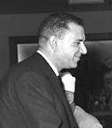 W
WShams Al Din Badran was an Egyptian government official. He served as minister of defence of Egypt during Gamal Abdel Nasser's era and the unsuccessful Six-Day War of 1967. He was removed from his post during the war and later imprisoned. After his release he married a British woman and lived in "self-imposed exile" in the United Kingdom.
 W
WAbdel Latif Boghdadi or Abd el-Latif el-Baghdadi was an Egyptian politician, senior air force officer, and judge. An original member of the Free Officers Movement which overthrew the monarchy in Egypt in the 1952 Revolution, Boghdadi later served as Gamal Abdel Nasser's vice president. The French author Jean Lacouture called Boghdadi "a robust manager" who only lacked "stature comparable to Nasser's." The two leaders had a fallout over Nasser's increasingly socialist and pro-USSR policies and Boghdadi subsequently withdrew from political life in 1964, although he mended ties with Nasser before the latter's death in 1970.
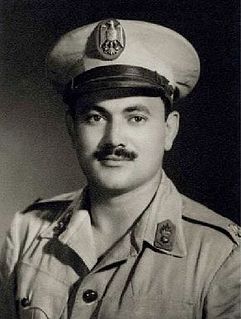 W
WKamal El-Din Hussein was a member of the Egyptian Free Officers who overthrew King Farouk.
 W
WHassan Ibrahim was an Egyptian Air Force officer and one of the founders of the Free Officers movement.
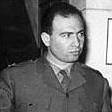 W
WKhaled Mohieddine was an Egyptian politician and a major in the Egyptian Army. He participated in the Egyptian Revolution of 1952, as a member of the Free Officers Movement, which overthrew the monarchy then under the rule of King Farouk.
 W
WZakaria Mohieddin was an Egyptian military officer, politician, Prime Minister of Egypt and head of the first Intelligence body in Egypt, the Egyptian General Intelligence Directorate.
 W
WMajor General Mohamed Bey Naguib Youssef Qutb El-Qashlan was an Egyptian politician and military figure who briefly served as the first President and Prime Minister of Egypt following the establishment of the Arab Republic of Egypt on 18 June 1953. He had served as personal guard to King Farouk I of Egypt and was a distinguished veteran of the 1948 Arab-Israeli War. After the war he became involved in the Free Officers Movement and, along with future president Gamal Abdel Nasser, lead the Egyptian Revolution of 1952 that deposed Farouk and ended the rule of the Muhammad Ali Dynasty in Egypt and Sudan.
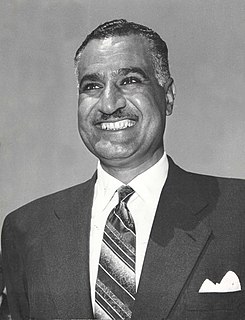 W
WGamal Abdel Nasser Hussain was an Egyptian politician who served as the second President of Egypt, from 1954 until his death in 1970. Nasser led the 1952 overthrow of the monarchy and introduced far-reaching land reforms the following year. Following a 1954 attempt on his life by a Muslim Brotherhood member, he cracked down on the organization, put President Mohamed Naguib under house arrest and assumed executive office. He was formally elected president in June 1956.
Ibrahim Abdel Ghafour El Orabi ; 20 May 1931 – 18 September 2019) was an Egyptian Army Lieutenant General and the 13th and former Chief of Staff of the Egyptian Armed Forces. He was a member of the Free Officers Movement as defined by the Egyptian revolution of 1952, which led to King Farouk abdicated to his son King Ahmed Fouad II, until announced the establishment of the Republic in 1953. He began his military career at the end of the forties and witnessed all Arab-Israeli wars and all the political volatility that passed by Egypt since the 1948 Arab–Israeli War to the Yom Kippur War where he was one of its heroes. He previously served as the 7th Chief of Operations of the Armed Forces. Prior to that, he served as Commander of the Second Field Army, as Commander of the 21st Armored Division, as Commander of the Arab Forces in Iraq, and as Commander of the Egyptian Armoured Corps deployed in the North Yemen Civil War. As the Chief of Staff of the Egyptian Armed Forces, Orabi was formerly the second highest-ranking military officer in all of the Egyptian Armed Forces. Orabi assumed his former assignment on 16 July 1983. Best known for severe discipline and rigor.
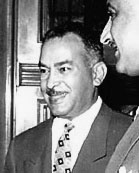 W
WAli Sabri was an Egyptian politician of Turkish origin.
 W
WMuhammad Anwar el-Sadat was an Egyptian politician who served as the third President of Egypt, from 15 October 1970 until his assassination by fundamentalist army officers on 6 October 1981. Sadat was a senior member of the Free Officers who overthrew King Farouk in the Egyptian Revolution of 1952, and a close confidant of President Gamal Abdel Nasser, under whom he served as Vice President twice and whom he succeeded as president in 1970. In 1978, Sadat and Menachem Begin, Prime Minister of Israel, signed a peace treaty in cooperation with United States President Jimmy Carter, for which they were recognized with the Nobel Peace Prize.
 W
WGamal Salem was a prominent member of the Egyptian Free Officers who led the Egyptian Revolution of 1952 that toppled the monarchy of Egypt and Sudan. Prior to the Revolution, he served as an officer in Royal Egyptian Air Force.
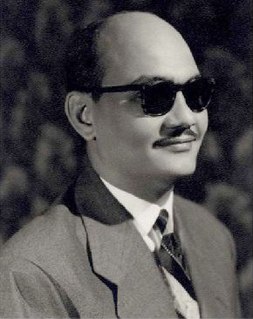 W
WSalah Salem was an Egyptian military officer, and politician, and a member of the Free Officers Movement that orchestrated the Egyptian Revolution of 1952.
 W
WYoussef Seddik was an Egyptian military figure and politician. He is noted for his role in launching the first military procedures in the Egyptian Revolution of 1952.
 W
WHussein Mahmoud Hassan el-Shafei, also known as Hussein el-Shafei, was a member of Egypt's 1952 revolutionary leadership council and served as Vice-president under two Egyptian presidents, Gamal Abdel Nasser and Anwar Sadat. He was one of the nine men who had constituted themselves as the committee of the Free Officers Movement, led the country's cavalry corps during the uprising and was one of only three living members of the Revolutionary Command Council at the time of his death.